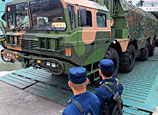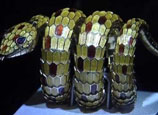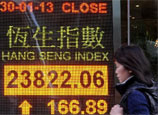
During the opening ceremony, he said China is Mongolia's biggest trading partner and top investment source.
The establishment of the BOC's Ulan Bator branch will boost investment and financial cooperation between the two countries, he added.
Bank of China President Li Lihui said the bank valued the Mongolian market greatly, and pledged to provide quality financial service for enterprises from the both countries.
Since September 2010, all of Mongolia's coal exports have been going to China.
Although China itself is rich in coal reserves, they are mainly thermal coal used for coal-fired power generation, explained Dai Bing, director of the coal industry information department at JYD.
"China lacks coking coal for its steel production," he said.
"The government is encouraging importing coal from other countries including Australia and Indonesia."
China imported 290 million metric tons of coal in 2012, a 29.8 percent rise year-on-year, according to Customs figures.
The crossing at Ganqimaodu was established in 1992 but only opened fully in 2009, when it was upgraded as a national-level border point run all-year-around.
Its total transit shipments during its first 18 years were just 10.6 million tons.
Cogt is an officer from the frontier inspection station who has worked in Ganqimaodu for 10 years.
"Only between 10,000 and 20,000 tons of goods passed here per year at the very start," he said.
"People then mostly traded wool, clothes, irons and general household articles."
But the huge coal deposits near the border have changed its fortunes.
Tavan Tolgoi coal mine, one of the world's largest untapped coal deposits, lies just 190 km from Ganqimaodu.
Cogt said that a truck takes just one minute at the border control after the new system was introduced, and on average 1,000 trucks now pass through every day.
The massive Tavan Tolgoi mine has total estimated reserves of 6.4 billion tons of coal, a quarter of which is high-quality coking coal.




















![]()
